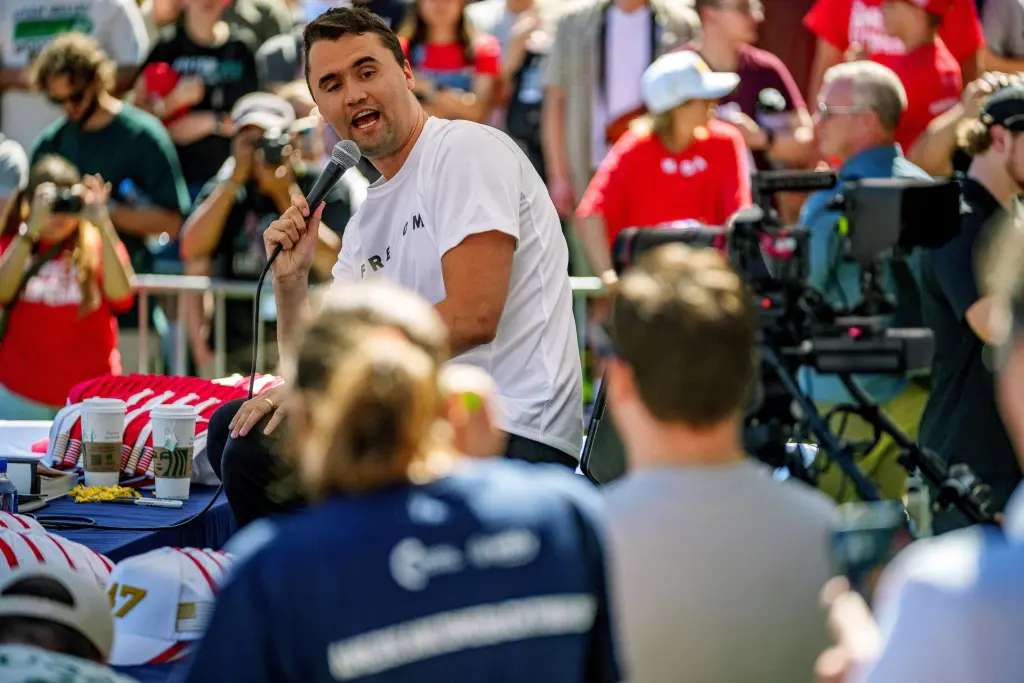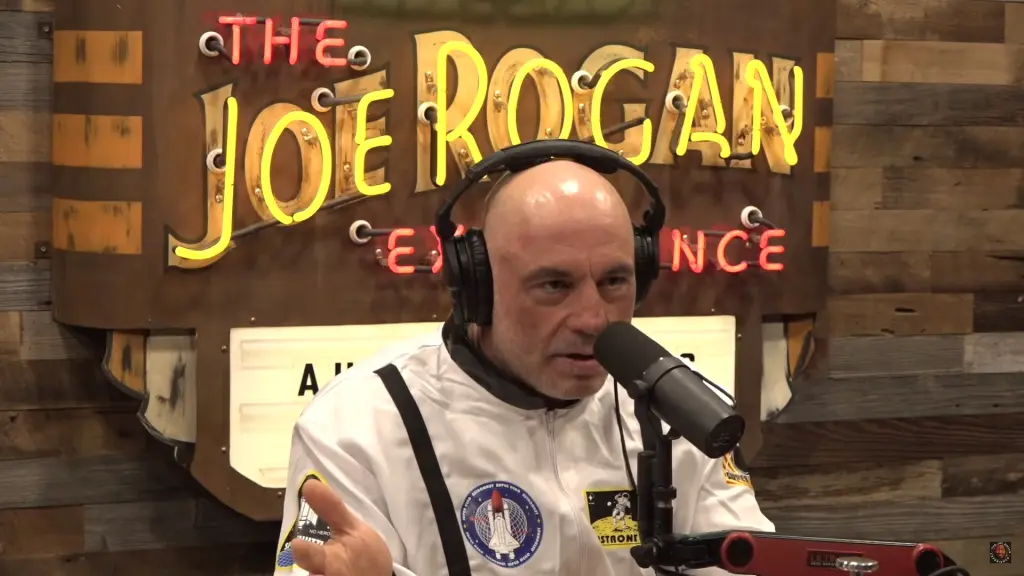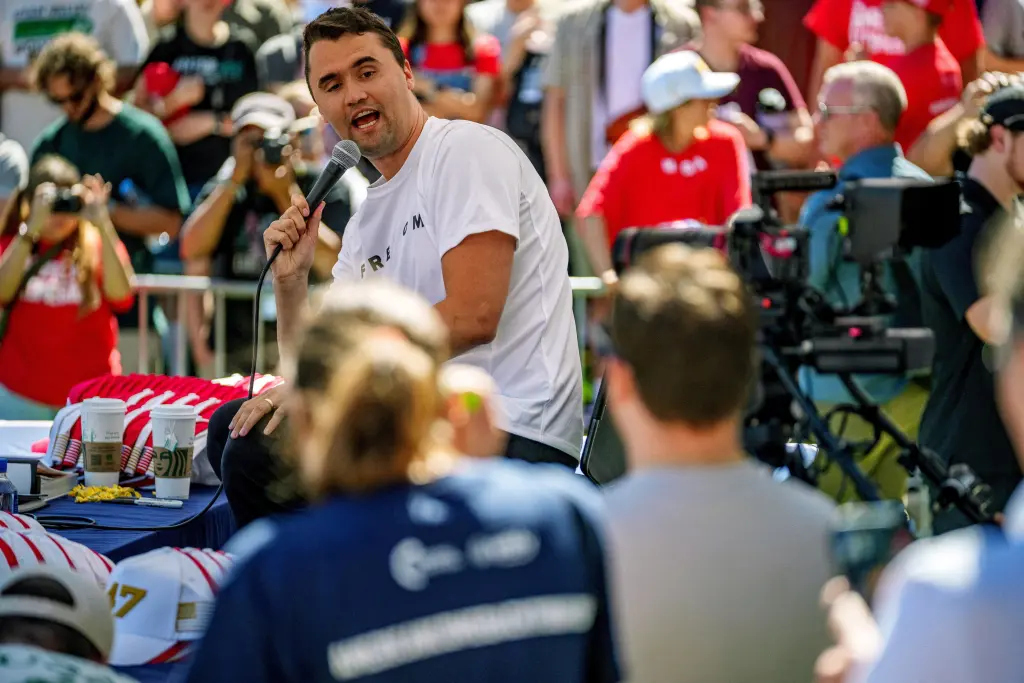Why Joe Rogan says the cheers after Charlie Kirk’s assassination mark step seven on a path to U.S. civil-war territory
The conversation began over a microphone in front of millions of listeners on “The Joe Rogan Experience.” Joe Rogan sat down with his guest Brian Redban and laid out a scenario few commentators were willing to say aloud: the United States is inching closer to internal collapse, and the moment that lit the match may be a public figure’s violent death — and the reaction that followed. Rogan, one of the most listened-to voices in the world of podcasting, referenced the assassination of Charlie Kirk — the co-founder of Turning Point USA and a polarizing conservative commentator — and the fact that some people on the political left appeared to celebrate or mock his death. In Rogan’s telling, that reaction isn’t just cruel; it’s a signal that the moral foundations of the nation are breaking apart.

The assassination of Charlie Kirk sent shockwaves through the country. On September 10, 2025, Kirk was fatally shot during a public speaking event at Utah Valley University in Orem, Utah. He had been on stage addressing a student audience when chaos erupted — a moment caught on dozens of mobile phones and live-streamed to hundreds of thousands before being taken down. Within hours, news outlets confirmed his death, and tributes from conservative politicians poured in. But as condolences filled one corner of social media, another corner — smaller, but disturbingly loud — responded with mockery, memes, and celebration. It was that reaction that Rogan called “the scariest thing I’ve ever seen online.”
During his conversation with Redban, Rogan’s tone shifted between disbelief and anger. “Charlie Kirk gets shot and people are celebrating,” he said. “Like, what are we doing? You want people to die because you disagree with them? What’s happening here? Where are we right now — on a scale from one to civil war?” He then added that before the assassination, he might have said the country was “at a four or five” on that scale. After the response to Kirk’s death, he said, “we’re probably at a seven.”
The idea that the United States might slide toward political violence has hovered in American commentary for years, but Rogan’s comments put a cultural face on it. His words came at a time when the boundaries between outrage, entertainment, and extremism seem increasingly blurred. The assassination of Kirk — who built his career amplifying conservative youth activism and sparring with progressive campuses — has become a kind of mirror, reflecting just how far the national divide has gone.
The U.S. Department of State publicly condemned not only the attack but also the reactions celebrating it. Deputy Secretary Christopher Landau issued a warning that foreign nationals praising or trivializing Kirk’s murder could face visa bans or other penalties, an unusually strong response that underscored how seriously the government viewed the cultural implications. In Congress, both Republicans and some Democrats joined in moments of silence, though others criticized what they viewed as selective empathy — yet another sign that even grief is now political.

To Rogan, the larger problem isn’t about party lines. It’s about desensitization — the gradual normalization of political violence. “We’ve lost the ability to see each other as human beings,” he said. “If you think it’s okay that someone’s murdered because they’re on the other side, then the system is done. You don’t come back from that.” His co-host, Redban, agreed, saying it feels like the U.S. is “living in two different realities.”
Political analysts and sociologists echo Rogan’s concern. Studies from the Brookings Institution and the University of Chicago’s NORC Center for Public Affairs show a rising tolerance for political violence in recent years. One 2025 survey revealed that only 55 percent of self-identified “very liberal” respondents said violence is never justified in politics, compared to 91 percent of conservatives. It’s a finding that many see as evidence of a widening moral gap — a shift away from debate toward destruction.
In the days following the assassination, memorials for Kirk were held in Arizona, Florida, and Washington, D.C., while counterprotests appeared online mocking those events. Conservative media framed the killing as proof of rising left-wing extremism; liberal commentators warned against martyrdom narratives. In Europe, far-right groups adopted Kirk’s image in online propaganda, calling him a “victim of globalist tyranny.” The assassination stopped being about one man — it became a symbol, a trigger, and a warning all at once.
Rogan’s point struck a nerve because it cut through ideological filters. He wasn’t defending Kirk’s politics — he was defending the principle that disagreement shouldn’t end in death. His podcast, often criticized for straddling controversy, became a forum for an uncomfortable truth: that the U.S. has crossed into an era where online tribes cheer for real-world casualties.
The parallels to history aren’t lost on observers. Commentators pointed to how nations fractured before — not over immediate civil wars, but through gradual moral corrosion, where citizens dehumanized each other first in language, then in laughter, and finally in violence. In a follow-up clip that went viral, Rogan said, “If you want to know how it starts, this is how. When you think the worst thing someone can be is wrong instead of evil, you can still talk. But once you call them evil — you justify anything.”
Meanwhile, the investigation into Kirk’s death continues. Authorities identified the suspect as a 29-year-old male who reportedly had a history of mental illness and online radicalization. Prosecutors said the motive appeared politically driven, though no formal link to organized extremist groups has been confirmed. The Department of Justice announced a broader probe into threats against public figures, citing a 70 percent increase in political-violence plots over the past three years.
In Washington, the reaction has been both political and psychological. Vice President J.D. Vance recorded a special edition of “The Charlie Kirk Show” from the White House complex, calling the assassination “a tragic symptom of what happens when hate replaces dialogue.” President Biden condemned the violence, urging Americans to reject the “poison of political vengeance.” Yet, as with everything in modern America, even unity statements became fodder for partisan bickering — conservatives accused Biden of hypocrisy for his past rhetoric about “MAGA extremists,” while liberals accused Republicans of exploiting the tragedy for sympathy.
Rogan’s comments are being interpreted across the spectrum: some see him as dramatizing divisions to drive clicks; others believe he’s voicing what many Americans already feel — that civility is dying faster than anyone imagined. Either way, the response underscores the fragile line the nation is walking.
In the end, the story of Charlie Kirk’s assassination and the celebration that followed is not just about a killing — it’s about a culture at war with itself. Rogan’s warning resonates because it’s not coming from a politician or pundit with a clear agenda, but from a figure whose audience spans ideological lines. His fear, that America might be “closer to civil war than anyone wants to admit,” feels less like hyperbole and more like a reflection of an exhausted public watching its institutions buckle under rage, distrust, and revenge.
As Rogan put it near the end of the podcast: “When people start clapping for blood, you’re already on the battlefield. You just haven’t realized it yet.”


